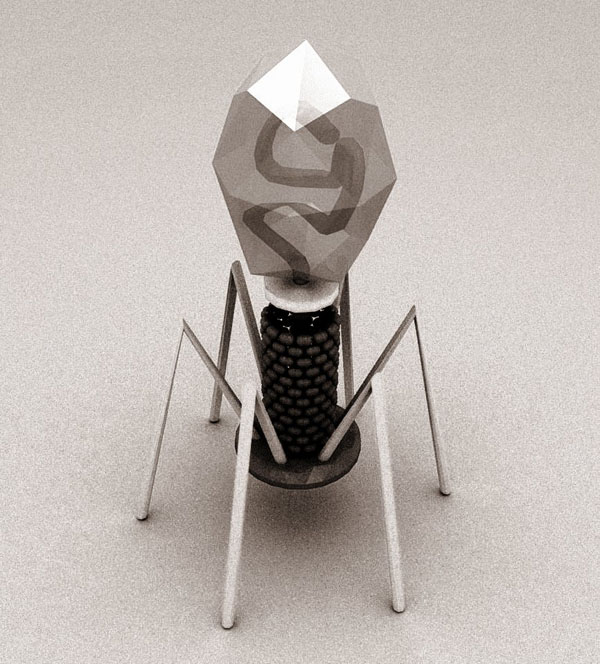AmpliPhi Biosciences Corporation has recently been granted a patent to treat antibiotic-resistant infections with a dual bacteriophage/antibiotic approach. This double-duty attack aims to re-sensitize bacteria to antibiotics by taking advantage of natural selection, as illustrated by a recent study. This study examined a strain of bacteria that responded to phage/antibiotic treatment due to “outsmarting” cell receptors and protein pumps.
Phage therapy generally works when bacterial receptor proteins recognize the phage and allow it to inject its genetic material and initiate the lytic cycle. If a phage is virulent enough, it will kill most of a bacterial population. The bacteria that survive, however, have a favorable mutation that makes them resistant to the phage. These unaffected progeny replicate, and over many generations, there can be a robust population that is resistant to the phage.
This is where the antibiotic chaser becomes important. It was shown that bacteria that had an alteration in their receptor protein structure or expression had a selective advantage over phage infection. It was also shown that the phage-resistant bacteria became handicapped against antibiotics to which they were previously “immune”. Their prior antibiotic resistance was due to a membrane pump that removes antibiotics. The alteration of their membrane proteins during the natural selection process somehow also altered critical protein interactions necessary to remove antibiotics.
This dual bacteriophage/antibiotic attack creates a situation where the bacteria is placed in a lose-lose situation; if its genome alters so that it is more resistant to phages, it will lose its resistance to antibiotics. If its genome remains unchanged, it is susceptible to phage infections.
AmpliPhi is not alone in its creation of innovative methods to treat antibiotic resistance. Their new patent will specifically target a bug that affects Cystic Fibrosis patients.












Join or login to leave a comment
JOIN LOGIN